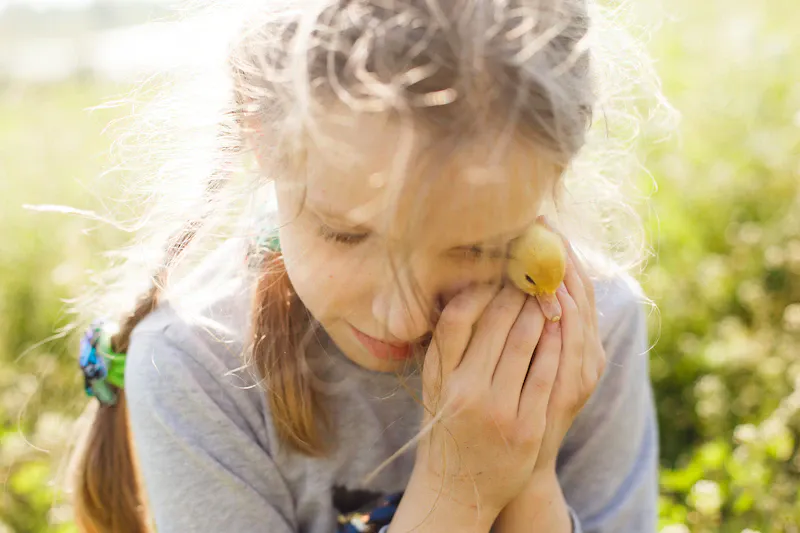Lets Talk About Children and Sexuality: Why Ignorance Isnt Bliss

The Importance of Answering Children’s Questions about Sexuality
As children grow and try to make sense of the world around them, they inevitably have questions about sexuality. However, many adults feel embarrassed and uncomfortable when confronted with these questions. This discomfort often stems from a narrow and restricted view of sexuality, which is only seen as appropriate for adults. This view can lead to adults feeling that children should be protected from sexual topics, leading to a lack of information and confusion for children.
The speaker in the video emphasizes the importance of answering children’s questions about sexuality, regardless of how uncomfortable it may be for adults. She highlights how children who do not receive answers to their questions may feel ashamed, guilty, or even turn to peers or the internet for answers. In this scenario, the information children receive may be inaccurate and even harmful.
Moreover, the speaker points out that by ignoring children’s questions about sexuality, we give them the message that sexuality is dangerous and wrong. This message is not only confusing but can also impact a child’s self-esteem and ability to navigate uncomfortable or even threatening situations.
Therefore, it is essential to provide children with accurate and age-appropriate information about sexuality. This information should cover a broad definition of sexuality that includes emotions, body knowledge, and social relationships. By acknowledging the reality of sexual feelings and behaviors throughout life, children can learn how to navigate their own sexuality in a healthy and safe way.
In conclusion, answering children’s questions about sexuality is essential for their development and safety. By providing accurate information in a clear and concise manner, we can help children develop a healthy relationship with their sexuality and promote a safer society.
Why Adults are Embarrassed by Questions Related to Children and Sexuality
The speaker in the video highlights that many adults feel embarrassed and uncomfortable when confronted with questions related to children and sexuality. This discomfort often stems from a narrow view of sexuality that sees it as inappropriate for children. This view can lead to adults feeling that children should be protected from sexual topics, leading to a lack of information and confusion for children.
Additionally, the speaker points out that many adults may not have received adequate sexual education themselves and may lack the knowledge and skills to answer children’s questions. Moreover, society often views sexuality as a taboo topic, which can make it difficult for adults to discuss it openly with children.
Furthermore, the speaker highlights that the way adults react to children’s questions about sexuality can have a significant impact on a child’s development. If adults respond with anger, shame, or dismissiveness, children may feel discouraged from asking further questions and may even internalize feelings of shame or guilt.
Therefore, it is essential for adults to approach children’s questions about sexuality with openness and non-judgment. This approach helps create a safe and supportive environment for children to learn about their sexuality and encourages them to ask questions and seek guidance.
In conclusion, the discomfort adults feel when confronted with questions related to children and sexuality often stems from a narrow view of sexuality and lack of adequate sexual education. By approaching the topic with openness and non-judgment, adults can create a supportive environment for children to learn about their sexuality and promote healthy sexual development.
Consequences of Not Answering Children’s Questions about Sexuality
When children do not receive adequate answers to their questions about sexuality, several consequences can arise. Firstly, children who do not receive answers to their questions may turn to peers or the internet for information. This approach can lead to children receiving inaccurate and potentially harmful information, leading to confusion and misunderstandings.
Secondly, children who do not receive answers to their questions may feel ashamed and guilty about their sexual feelings. This shame and guilt may lead to negative self-esteem and impact their ability to navigate sexual situations safely.
Thirdly, children who do not receive answers to their questions may not learn how to say no in uncomfortable or even threatening sexual situations. This inability to say no may lead to negative sexual experiences and may impact their ability to set boundaries in relationships.
Moreover, the speaker highlights that the messages children receive when their questions about sexuality go unanswered can have a significant impact on their development. If children are made to feel that sexuality is inappropriate or dangerous, they may develop negative attitudes towards sex that can impact their future relationships.
Therefore, it is crucial for adults to provide children with accurate and age-appropriate information about sexuality. This information can help children develop a healthy relationship with their sexuality and enable them to make informed decisions about their bodies and relationships.
In conclusion, not answering children’s questions about sexuality can lead to several negative consequences. By providing children with accurate and age-appropriate information, adults can help promote healthy sexual development and enable children to navigate their sexuality safely.
Sexuality as a Natural Part of Human Development
The speaker in the video emphasizes that sexuality is a natural part of human development that begins at birth and continues throughout life. Sexual feelings exist at all ages, including in children and infants, and should not be stigmatized or taboo.
Moreover, the speaker highlights that sexuality education is about much more than just reproduction. It includes emotions, feelings, knowing your body, self-esteem, social relationships, diversity, and values. Understanding these aspects of sexuality can help children develop a healthy relationship with their bodies and sexuality.
The speaker also emphasizes that sexual development is a gradual process that occurs throughout a person’s life. The way individuals express their sexuality changes with age and is influenced by cultural and social factors. For instance, children express their sexual feelings in playful games with other children, while adults express their sexuality differently.
By acknowledging that sexuality is a natural part of human development, adults can help children develop a healthy relationship with their sexuality. This approach involves being open and honest about sexual topics, providing accurate information, and creating a safe and supportive environment for children to ask questions.
In conclusion, sexuality is a natural part of human development that should not be stigmatized or taboo. By acknowledging the importance of sexuality education and providing accurate information, adults can help children develop a healthy relationship with their sexuality and enable them to make informed decisions about their bodies and relationships.
Understanding Sexual Diversity and Values in Sexuality Education
The speaker in the video emphasizes that sexuality education should include discussions about sexual diversity and values. Sexual diversity refers to the many different ways that people express their sexuality, including different sexual orientations and gender identities.
Understanding sexual diversity is essential for children to develop a healthy relationship with their sexuality and to be accepting of others’ sexual orientations and gender identities. This approach involves acknowledging that people express their sexuality differently and respecting those differences.
Values also play a significant role in sexuality education. The speaker emphasizes that families, cultures, and societies have different values about sexuality, and children need to understand and respect those values. This approach involves creating a safe and supportive environment where children can explore their values and beliefs about sexuality without fear of judgment.
Sexuality education that includes discussions about sexual diversity and values can help children develop empathy, respect, and acceptance towards others. It can also help them understand and respect their own sexuality and make informed decisions about their bodies and relationships.
In conclusion, sexuality education should include discussions about sexual diversity and values to help children develop a healthy relationship with their sexuality and respect others’ sexual orientations and gender identities. By creating a safe and supportive environment and providing accurate information, adults can help children navigate their sexuality safely and develop empathy and acceptance towards others.
The Importance of Using Simple Language when Talking to Children about Sexuality
The speaker in the video emphasizes that using simple, clear, and understandable language is essential when talking to children about sexuality. Children have limited vocabulary and understanding of complex concepts, so using age-appropriate language is crucial for them to grasp the information accurately.
The speaker suggests that adults should use short, clear, and simple sentences to explain sexual topics to children. This approach involves avoiding complicated or technical language and using terms that children can understand. For instance, using terms like “private parts” instead of scientific names can help children understand and communicate more effectively.
Using simple language is also essential to create a safe and supportive environment for children to ask questions. If children feel overwhelmed or intimidated by complex language, they may not feel comfortable asking questions, which can hinder their sexual development.
Moreover, using simple language can help parents and caregivers avoid misunderstandings and miscommunications with their children. When adults use complicated language, children may misinterpret the information, which can lead to confusion or incorrect beliefs about sexuality.
In conclusion, using simple language when talking to children about sexuality is crucial to help them understand and communicate effectively. By using age-appropriate language, adults can create a safe and supportive environment for children to ask questions and develop a healthy relationship with their sexuality.
Sexuality Education Does Not Promote Early Sexual Behavior
The speaker in the video emphasizes that sexuality education, even at a young age, does not promote early sexual behavior. In fact, research shows that providing children with age-appropriate information about sexuality can have positive effects on their development and can prevent early sexual behavior.
The speaker suggests that many people are afraid to give sexuality education to children because they believe it will promote early sexual behavior. However, this is not true. Children who receive sexuality education are more likely to make informed decisions about their sexual health and behavior as they grow older.
Moreover, sexuality education can help children understand the importance of respecting boundaries and consent, which are crucial skills for healthy relationships. By providing children with accurate and age-appropriate information about sexuality, adults can help children develop a positive and healthy attitude towards sexuality.
In conclusion, sexuality education does not promote early sexual behavior. Instead, it can have positive effects on children’s development and can help them make informed decisions about their sexual health and behavior. By providing children with accurate and age-appropriate information about sexuality, adults can help them develop a healthy relationship with their sexuality and prevent negative consequences related to sexual behavior.
Why Keeping Children Ignorant about Sexuality is Not Protection
The speaker in the video argues that keeping children ignorant about sexuality is not protection. Instead, it can lead to confusion, shame, and guilt related to sexuality, and it can prevent children from developing a healthy relationship with their sexuality.
When children ask questions about sexuality, it is important for adults to answer them honestly and age-appropriately. By avoiding these questions or giving vague or incorrect answers, adults can create confusion and anxiety for children. Moreover, by keeping children ignorant about sexuality, adults are sending the message that sexuality is dangerous and wrong.
This can lead to shame and guilt for children when they experience sexual feelings or behaviors, as they have not been taught that sexuality is a natural and healthy part of human development. Moreover, by keeping children ignorant about sexuality, adults are not equipping them with the knowledge and skills they need to make informed decisions about their sexual health and behavior as they grow older.
In conclusion, keeping children ignorant about sexuality is not protection. It can lead to confusion, shame, and guilt related to sexuality, and it can prevent children from developing a healthy relationship with their sexuality. By providing children with accurate and age-appropriate information about sexuality, adults can help children make informed decisions about their sexual health and behavior and develop a positive and healthy attitude towards their sexuality.
Conclusion
Sexuality education is a crucial aspect of a child’s development, and it is essential that parents, caregivers, and educators approach this topic with honesty, openness, and sensitivity. The speaker in the video argued that children have questions about sexuality, and it is important for adults to answer them honestly and age-appropriately.
By avoiding these questions or giving vague or incorrect answers, adults can create confusion and anxiety for children. Moreover, by keeping children ignorant about sexuality, adults are sending the message that sexuality is dangerous and wrong. This can lead to shame and guilt for children when they experience sexual feelings or behaviors, as they have not been taught that sexuality is a natural and healthy part of human development.
In contrast, providing children with accurate and age-appropriate information about sexuality can help them make informed decisions about their sexual health and behavior and develop a positive and healthy attitude towards their sexuality. Moreover, sexuality education can promote healthy relationships, self-esteem, and body image, and it can help children understand and appreciate the diversity of human sexuality.
Sexuality education is not just about reproduction, but it also involves emotions, feelings, and values. By discussing these topics with young children in a simple, clear, and understandable language, parents, caregivers, and educators can promote healthy attitudes towards sexuality and help children develop a positive and healthy relationship with their sexuality.
In conclusion, sexuality education is an important aspect of a child’s development, and it is crucial that parents, caregivers, and educators approach this topic with honesty, openness, and sensitivity. By providing children with accurate and age-appropriate information about sexuality, adults can help children make informed decisions about their sexual health and behavior and develop a positive and healthy attitude towards their sexuality.



